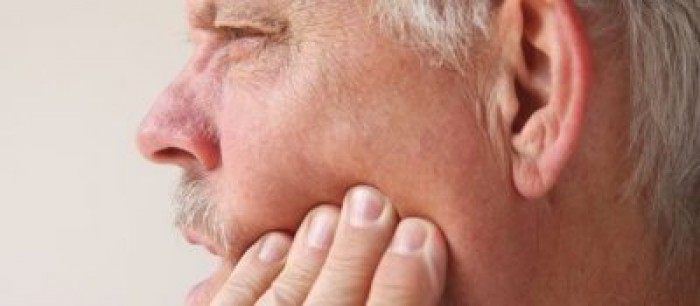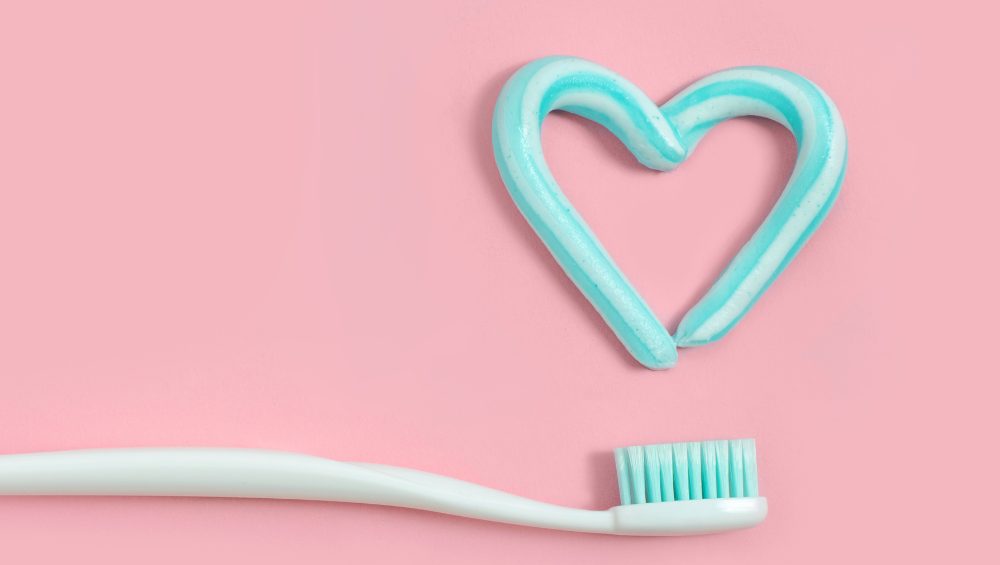
Caring for Your Child’s Dental Health: How to Avoid Pediatric Dental Issues
February 7, 2019
Bad Food for Teeth: Seemingly Healthy Foods to Avoid
March 7, 2019Healthy gums may pave the way to heart health. Both the American Dental Association and the American Heart Association recognize a correlation between gum disease and heart disease. In honor of American Heart Month, we want to take a moment to inform you of this often overlooked connection between your gums and your cardiovascular system.
Researchers are looking into the connection between gum disease and heart disease. At this time, they still have many questions, but the connection is well established.
According to Harvard Medical School, people with moderate or advanced gum disease are two to three times as likely to suffer a stroke, heart disease or a heart episode.
How Your Oral Health May Impact Your Health
Harvard Health also outlined some common theories about why gum disease and heart disease seem connected. Some researchers believe the inflammation caused by gum disease stresses the body and increases the risk of heart disease. Another theory is the bacteria associated with plaque and gum disease may enter the bloodstream and cause system-wide damage to the body. Still, others believe that there may be other common factors such as lack of medical care that correlate gum disease and heart disease.
Your oral health provides doctors with warning signs for a variety of diseases and conditions. In addition to heart disease, health concerns associated with gum disease include:
- Diabetes
- High blood pressure
- Strokes
- Delivering premature and underweight babies
- Lung Disease
- Rheumatoid arthritis
Of course, this correlation isn’t a direct link. Some people with healthy gums suffer from heart disease, while some with gum disease maintain healthy hearts. Also, gum disease is very common. According to the Center For Disease Control, half of the adults over 30 suffer from periodontal disease.
Although the exact connection between gum disease and heart disease is undetermined, good oral health is an important part of any preventative health plan. At the very least, healthy gums result in less discomfort and a healthy mouth.
Prevention is the best cure for gum disease. Understanding the cause of gum disease makes it easier to prevent and treat this condition. Gum disease is the result of the body becoming inflamed because of the presence of bacteria. As it progresses, the inflammation affects not only the gum tissue but the bone that supports your teeth. There are three phases of gum disease including gingivitis, periodontitis, and more advanced periodontitis. Often both gingivitis and periodontitis can be completely symptom free.
Symptoms of Advanced Periodontitis May Include:
- Tender, swollen, bright red colored gums.
- Gums that bleed while brushing, flossing, or sometimes for no apparent reason.
- Unpleasant or bad breath.
- Loose teeth or changes in the fit of dental appliances.
- Puss or other signs of infection.
Gum disease is rarely painful but often results in tooth loss if it is left untreated. A healthy lifestyle and good oral hygiene help prevent gum disease. Why not do your mouth and possibly your heart a favor by living a heart and gum healthy lifestyle?
Five Tips On How To Avoid Gum Disease and Heart Disease
Avoid Smoking, Chewing, And Vaping
If you smoke, you may want to quit. Smoking and tobacco use are bad for both your oral health and your cardiovascular health. Talk with your doctor about smoking cessation programs if you currently smoke. Otherwise, continue avoiding tobacco use.
Live An Active Lifestyle
Exercise and physical activity benefit your health in many ways. Surprisingly, regular exercise may even reduce your risk of gum disease, according to research from the Third National Health and Nutrition Examination Survey. Strive to get at least 150 minutes of moderate exercise weekly as recommended by the Center For Disease Control.
Consume A Heart-Healthy Diet
A heart-healthy diet also happens to be gum healthy when combined with good oral hygiene. Aim to eat a variety of heart-healthy foods each day including lean proteins, high fiber foods like fresh produce and whole grains, and healthy fats like Omega 3 fatty acids. Also, limit sugary drinks and foods like soda, candy, and desserts.
These foods serve as the building blocks for your body and help your body fight infection and repair from life’s stresses.
Practice Good Oral Hygiene – Brush And Floss Daily
Consistent oral hygiene helps keep your gums healthy and pain-free. Be sure to brush twice a day and floss daily. Some people also prefer to use a mouthwash to help prevent the build-up of bacteria or to soothe minor inflammation.
During your next dental appointment, confirm that your brushing and flossing techniques are correct. Also, check to see whether your dental products such as your toothpaste and mouthwash are appropriate for your needs. Although dentists typically recommend a toothpaste containing fluoride to most people, product recommendations vary depending on your set of circumstances.
Talk with your dentist or hygienist about the right oral hygiene plan for your needs. Depending on your current dental health, your dentist may offer additional oral hygiene recommendations.
Schedule Regular Dental Exams And Cleanings
Regular dental exams and professional cleanings are essential to your oral health. Depending on your situation, your dentist will recommend the frequency of your exams and cleanings. By following this plan, your dentist may identify, diagnose and treat any dental issues early. Early intervention has the highest chance of success when treating any health concerns.
Professional cleaning removes built-up tartar and plaque that routine brushing misses. Regular cleanings help prevent tooth decay and gum disease. Your dental cleaning may even help keep your heart healthy. In honor of American Heart Month, take a moment to revisit your oral hygiene and whether your lifestyle is heart healthy.
If you have scheduled your dental examination, contact Southview Dentistry at (704) 333-4760 to schedule one. Charlotte residents trust their smiles to us!




